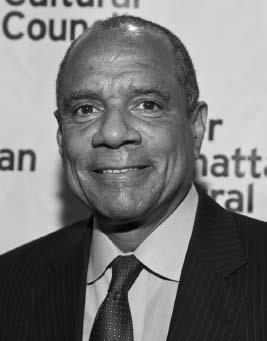Business and CommerceCorporate America |
Who are some successful black leaders in corporate America? |
Business executive and lawyer Kenneth I. Chenault (1952–) became president and chief operating officer of American Express in 2000, the first black to hold either position. In April 1999 his predecessor, Harvey Golub, declared Chenault as his CEO-designee, having tapped him two years early as president of the company. The appointment made him one of the most visible and highest-ranking blacks in corporate America. Since 1981, when he joined the company, Chenault has held a number of high positions with American Express. These include vice president of merchandise services and then senior vice president and general manager of the division, along with top positions in the Platinum/Gold Card Division, the Personal Care Division, the Consumer Card and Financial Services Group, and American Express Travel Related Services.
Reginald F. Lewis (1942–1993) became one of the four hundred wealthiest entrepreneurs in the United States. Born in Baltimore, Maryland, Lewis graduated from Virginia State College (now Virginia State University) in Petersburg and received his law degree from Harvard Law School. After graduating in 1968, he joined one of New York City’s blue chip law firms, Paul, Weiss, Rifkind, Wharton & Garrison. Two years later he became a partner with Murphy, Thorp and Lewis, one of Wall Street’s first black law firms. Later he bought out two of his partners and renamed the firm Lewis and Clarkson. Within a few years the firm had among its major clients General Foods, the Ford Foundation, Aetna Life, and Equitable Life. In 1983 Lewis created TLC Pattern and took over McCall Pattern Company, closing the deal on January 29, 1984, without using any of his personal funds. He sold the company in 1984 for a ninety-to-one gain.
Harvey Clarence Russell Jr. (1918–1998) became the first black vice president of a leading national corporation, PepsiCo, in 1962. Born in Louisville, Russell served in the U.S. Coast Guard during World War II and, though advised that he would not receive the position, became one of the coast guard’s first black deck officers. He joined a Manhattan advertising firm where he was placed in charge of marketing. At PepsiCo Russell was put in charge of “Negro sales” and by 1958 managed its ethnic marketing department. In 1962 he was appointed vice president in charge of special markets for the company, in 1965 he was appointed vice president in charge of planning, and vice president for community affairs in 1969, where he remained until his retirement in 1983.
African Americans moved into corporate America’s media industry as major leaders. Lawyer, political advisor, and corporate executive Richard Dean Parsons (1948–) was named chief executive officer of AOL-Time Warner and became the first black to head the world’s largest media conglomerate. He took office on May 16, 2001. Parsons grew up in Queens, New York, and graduated from the University of Hawaii and Union University’s Albany Law School. In 1971 he joined New York governor Nelson Rockefeller as assistant counsel. During Rockefeller’s term as vice president, Parsons served as general counsel and associate director of the White House Domestic Council. In 1977 he joined the law firm Patterson, Belknap, Webb & Tyler and two years later was named a managing partner. He was one of New York mayor Rudolph W. Giuliani’s first-term campaign team members, and in 2001 became a member of Mayor-elect Michael R. Bloomberg’s transition team. Earlier in 2001 President George W. Bush appointed Parsons to co-chair, with former U.S. senator Daniel Patrick Moynihan, a commission to recommend changes in the country’s Social Security program.

Kenneth I. Chenault became president of American Express in 2000.
